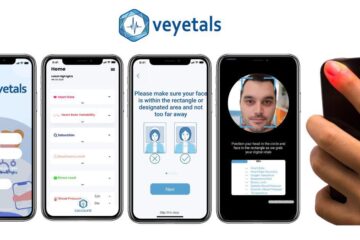Medically Reviewed By: Dr. Hanif Chatur
Table of Contents
ToggleKey Takeaways
- Inclusive Health Services: Toronto’s telehealth scene offers a diverse range of services in multiple languages, integrated with Ontario’s healthcare system for a seamless patient experience.
- Enhanced Accessibility and Flexibility: Telehealth in Toronto breaks down geographical barriers, providing residents with the flexibility to receive care at home or on the go, saving time and costs associated with traditional in-person visits.
- Challenges and Growth: Despite its success, Toronto faces challenges like data privacy and the digital divide. Yet, with continued investment in digital health, the city is poised to address these issues and remain at the forefront of telehealth innovation.
Subscribe to Our blogs
Toronto, Canada’s largest city and a hub of innovation, is very much among the early adopters in the global shift towards telehealth. This bustling metropolis, known as much for its cultural and demographic diversity as it is for its vibrant healthcare ecosystem, has embraced telehealth aggressively to continue to provide its residents with convenient, high-quality medical care. So, come join us on a bike-share ride through Toronto’s evolving telehealth landscape, taking stock of its growth, unique features, and the benefits it brings to the city’s residents.
The Rise of Telehealth in Toronto
Toronto’s healthcare system, like almost anywhere else in the world, has historically been anchored in face-to-face consultations. However, the social distancing protocols implemented in the wake of the COVID-19 pandemic and coincidental and not always unrelated advancements in technology have introduced a shift in healthcare paradigms, with a significant pivot towards telehealth solutions. Hospitals, private clinics, and individual practitioners have adopted virtual care models to ensure continuous care delivery amidst social distancing and lockdown measures.
Unique Features of Toronto’s Telehealth Scene:
Diverse Range of Services: From mental health consultations to routine check-ups and specialist appointments, Toronto’s telehealth industry caters to a broad spectrum of services, ensuring that residents have uninterrupted access to comprehensive care, irrespective of the nature and complexity of their health concerns.
Multilingual Platforms: Granting due cognisance to the rich multiculturalism of the city, many telehealth platforms in Toronto offer their services in multiple languages, ensuring that language is not a barrier to quality healthcare.
Integration with Ontario’s Health System: Telehealth platforms in Toronto are often integrated with the broader Ontario health system. This allows for patient records, lab results, and other vital information to be shared seamlessly across platforms between virtual and traditional care providers.
User-friendly Apps: Many of Toronto’s telehealth providers have developed intuitive mobile and web applications. These apps often come with features such as appointment reminders, prescription renewals, and chatbots that respond in real time to medical queries.
Benefits to Torontonians:
Accessibility: Telehealth overcomes geographical barriers and transportation restrictions, allowing residents from all parts of the city, including those in underserved areas, to gain access to quality healthcare.
Flexibility: With the option to consult healthcare providers from the comfort of their homes or workplaces, busy Torontonians can schedule appointments that fit into their busy schedules without generating the downtimes associated with commuting to in-person appointments.
Cost Savings: By eliminating the need for travel and reducing the time taken off work for medical appointments, telehealth can lead to significant cost savings for patients.
Reduced Wait Times: Virtual consultations often lead to reduced wait times, ensuring that patients receive timely care.
Safety: During public health crises, like the COVID-19 pandemic we experienced in the recent past, telehealth offers a safe way for patients to consult with healthcare providers without the risk of exposure.
Challenges and the Road Ahead:
While telehealth has seen impressive growth in Toronto, there are challenges that still need to be overcome. Concerns about data privacy, the digital divide leading to unequal access, and the need for standardized telehealth protocols are just some of the many issues that need to be addressed for telehealth to become the successful and reliable healthcare platform of choice. As the city continues to pursue an aggressive policy of investment in digital health infrastructure to establish inclusive healthcare, Toronto is setting itself up to be in an excellent position to overcome these challenges.
Conclusion:
Toronto’s telehealth landscape, characterized by its adaptability, inclusiveness, and forward-thinking approach, presents a model for other cities worldwide. As technology continues to evolve to keep pace with the changing needs of residents, telehealth will undoubtedly play a pivotal role in shaping the future of healthcare in this iconic Canadian city. Whether you’re a Torontonian benefiting from these services or a distant observer, experiencing and observing the growth and potential of telehealth in Toronto are undeniably exciting and transformative.
MarkiTech has various subsidiaries with products and services targeted towards digital healthcare, telehealth/telemedicine, and a virtual clinic with a laser focus on helping seniors age in place and help their caregivers.
Sensights.ai is a company focused on remote patient monitoring and aging solutions, which utilizes artificial intelligence to track patient’s health and keep a round-the-clock connection between caregivers and patients.
Veyetals also uses rPPG and AI modeling algorithms to measure vitals anytime, anywhere to capture the light reflected by the blood vessels under a patient’s skin.
Lastly, we have now launched our latest Mental Health AI Scribe tool called CliniScripts.com.



